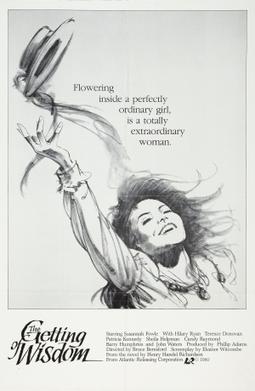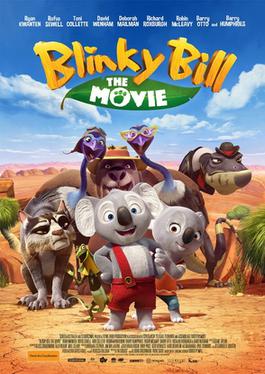
John Barry Humphries was an Australian comedian, actor, author and satirist. He was best known for writing and playing his stage and television characters Dame Edna Everage and Sir Les Patterson. Humphries's characters brought him international renown. He appeared in numerous stage productions, films and television shows. Originally conceived as a dowdy Moonee Ponds housewife who caricatured Australian suburban complacency and insularity, the Dame Edna Everage character developed into a satire of stardom – a gaudily dressed, acid-tongued, egomaniacal, internationally fêted "housewife gigastar".

Dame Edna Everage, often known simply as Dame Edna, is a character created and performed by Australian comedian Barry Humphries, known for her lilac-coloured hair and cat eye glasses ; her favourite flower, the gladiolus ("gladdies"); and her boisterous greeting "Hello, Possums!" As Dame Edna, Humphries wrote several books, including an autobiography, My Gorgeous Life; appeared in several films; and hosted several television shows.

Phillip Andrew Hedley Adams, is an Australian humanist, social commentator, broadcaster, public intellectual and farmer. He hosts Late Night Live, an Australian Broadcasting Corporation (ABC) program on Radio National four nights a week. He also writes a weekly column for The Weekend Australian.

Bruce Beresford is an Australian film director and screenwriter. He has made more than 30 feature films over a 50-year career, both locally and internationally in the United States.
Sir Leslie Colin Patterson is a fictional character created and portrayed by Australian comedian Barry Humphries. Patterson is obese, lecherous and offensive.
Barry McKenzie is a fictional character created in 1964 by the Australian comedian Barry Humphries, suggested by Peter Cook, for a comic strip, written by Humphries and drawn by New Zealand artist Nicholas Garland in the British satirical magazine Private Eye. He was subsequently featured in theatre and in two films in the 1970s, and portrayed by Australian singer Barry Crocker.

Les Patterson Saves the World is a 1987 Australian comedy film starring Barry Humphries as his stage creations Sir Les Patterson and Dame Edna Everage.
Barry Hugh Crocker is an Australian Gold Logie-winning character actor, television personality, singer, and variety entertainer with a crooning vocal style.
The Great Macarthy is a 1975 comedy about Australian rules football. It was an adaptation of the 1970 novel A Salute to the Great McCarthy by Barry Oakley. It stars John Jarratt as the title character as a local footballer playing for Kyneton, who is signed up by the South Melbourne Football Club. It also stars Barry Humphries and Judy Morris. It was released at a time of resurgence in Australian cinema but was not very successful despite its high-profile cast.

Patricia Emily Perry was an English actress and dancer. Born in Torquay, Devon, she was best known for her recurring role as Madge Allsop, Dame Edna Everage's long-suffering, silent "bridesmaid" from Palmerston North, New Zealand.

Barry McKenzie Holds His Own is a 1974 Australian comedy film directed by Bruce Beresford and starring Barry Crocker, Barry Humphries and Donald Pleasence.
Madge Allsop is a fictitious character invented by satirist Barry Humphries as the long-time companion of his most popular and enduring character, Dame Edna Everage. First mentioned in Edna's monologues in the 1960s, Madge was subsequently depicted on stage, TV and film, over three decades, by several people. The character was discontinued following the retirement of British actress Emily Perry, who played the role for over 15 years.

The Getting of Wisdom is a 1977 Australian film directed by Bruce Beresford and based on the 1910 novel of the same title by Henry Handel Richardson.
Side by Side is a 1975 pop comedy film, directed by Bruce Beresford. It tells the story of two rival nightclub owners played by Terry-Thomas and Billy Boyle. The cast also includes Barry Humphries, Stephanie de Sykes, Frank Thornton and many contemporary pop artists such as The Rubettes, Mud and Kenny. Beresford described the film as "awful" and said it had "the worst script I've ever read". It was released on DVD on 29 July 2013.
The Phillip Street Theatre was a popular and influential Australian theatre and theatrical company, located in Phillip Street in Sydney that was active from 1954 and 1971 that became well known for its intimate satirical revue productions.
Madeleine Grace Orr was an Australian-born film, stage and TV actress who worked for many years in London. She is best known as the first person to portray Madge Allsop, bridesmaid and companion to Barry Humphries' most popular and enduring comic character, Dame Edna Everage.
Pterodactyl Woman from Beverly Hills, made by Ptereo Pictures Inc. and Troma Entertainment in 1995, is a live-action farcical horror film, written and directed by Philippe Mora. The film stars Beverly D'Angelo, Aron Eisenberg and Brion James. Australian entertainer Barry Humphries has a cameo, playing three parts in the same scene: a grocery store clerk, the store manager and a "lady shopper" who is clearly his stage character Dame Edna Everage. The film had a limited cinematic release in January 1996 and was released on video by Troma in 1997.

Australian comedy refers to the comedy and humour performed in or about Australia or by the people of Australia. Australian humour can be traced to various origins, and today is manifested in a diversity of cultural practices and pursuits. Writers like Henry Lawson and Banjo Paterson helped to establish a tradition of laconic, ironic and irreverent wit in Australian literature, while Australian politicians and cultural stereotypes have each proved rich sources of comedy for artists from poet C. J. Dennis to satirist Barry Humphries to iconic film maker Paul Hogan, each of whom have given wide circulation to Australian slang.
Peter O'Shaughnessy OAM was an Australian actor, theatre director, producer and writer who presented the work of playwrights ranging from Shakespeare, Shaw, Ibsen, Strindberg, Chekhov to modern dramatists, such as Ionesco, Pinter and Beckett. He acted as a mentor to and collaborator with comedian Barry Humphries in his early career. He attended Xavier College, Melbourne.

Blinky Bill the Movie is a 2015 animated adventure comedy film based on the Blinky Bill character created by Dorothy Wall for a children's book series in 1933. The film was produced by Flying Bark Productions and partly distributed and co-produced by Assemblage Entertainment and Telegael.










